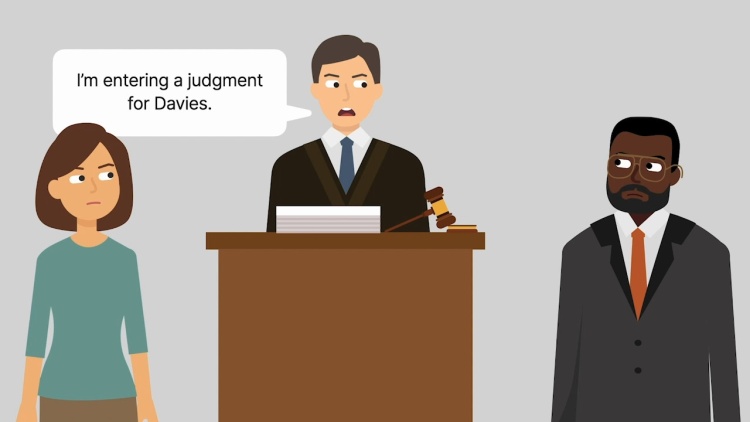State Farm Mutual Automobile Insurance Company v. Davies
Virginia Supreme Court
310 S.E.2d 167 (1983)
- Written by Genan Zilkha, JD
Facts
Dixie Davies (plaintiff) was injured when the car she was driving collided with a car driven by Patricia Ann Turner. Turner was insured by a State Farm Mutual Automobile Insurance Company (State Farm) (defendant) policy. Davies was insured by a Government Employees Insurance Company (GEICO) (defendant) policy. The GEICO policy had a standard provision for uninsured motorist coverage. David sued Turner for personal injuries. Turner delivered the complaint to State Farm. At trial, Turner failed to appear. State Farm defended the action but reserved its rights. A $10,725 verdict and judgment was entered against Turner. This judgment remained unpaid. As a result, Davies initiated a declaratory-judgment proceeding to determine if either GEICO or State Farm were liable for her damages. State Farm disclaimed liability because, it claimed, Turner’s failure to appear at trial constituted a breach of the cooperation clause of the State Farm policy. GEICO defended the suit because, it claimed, State Farm’s disclaimer of liability was not effective, and, as a result, Turner was not uninsured. After a hearing was held, the trial court determined that State Farm had not been prejudiced by Turner’s failure to appear at trial. The trial court entered judgment against State Farm and in favor of Davies. The trial court dismissed GEICO from the action. State Farm appealed.
Rule of Law
Issue
Holding and Reasoning (Carrico, C.J.)
What to do next…
Here's why 907,000 law students have relied on our case briefs:
- Written by law professors and practitioners, not other law students. 47,100 briefs, keyed to 996 casebooks. Top-notch customer support.
- The right amount of information, includes the facts, issues, rule of law, holding and reasoning, and any concurrences and dissents.
- Access in your classes, works on your mobile and tablet. Massive library of related video lessons and high quality multiple-choice questions.
- Easy to use, uniform format for every case brief. Written in plain English, not in legalese. Our briefs summarize and simplify; they don’t just repeat the court’s language.





